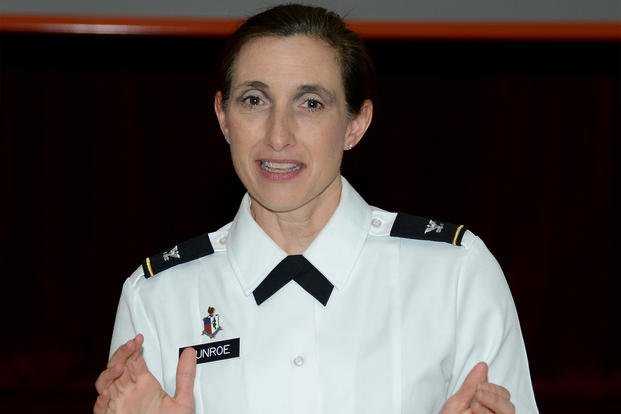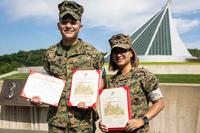What does it take to be a nurse? The answer isn't just white shoes and a stethoscope. It's not just understanding and compassion or a nursing degree, either. It's much more.
The profession demands the ability to think quickly and clearly in an emergency. The ability to evaluate a situation, determine the best course of action and take charge. And that's what ROTC uniquely is qualified to teach.
Army ROTC isn't "boot camp." But unlike most college courses that teach only one discipline, ROTC teaches leadership skills that will translate to any field, whether it be law, journalism or, in your case, nursing.
As a ROTC nursing student, you'll combine college electives in military science, and an invaluable summer clinical experience, with your regular nursing program. You will develop your professional and leadership skills while learning about yourself and what you can accomplish.
Upon completion of the ROTC program and graduation from college, you'll be commissioned as an officer in the Army Nurse Corps, ready to confront the challenges of your profession. You'll find that your Army ROTC experience has taken you a long way toward realizing your professional career goals.
Experience. You won't find the kind of direct, hands-on experience you receive in ROTC training anywhere else. You will be given significant responsibilities very early in your nursing career.
Leadership. An officer is a leader. That's why leadership and managerial training are stressed in ROTC. The Army provides nursing students with unique training to develop the kinds of skills that will help you take charge.
Advancement. There is no mystery about how to get ahead in the Army Nurse Corps. Promotions are based on performance, and the career path is clear-cut. You'll be given the opportunity to progress in rank as your nursing proficiency and effective leadership traits are demonstrated.
Nursing is a dynamic profession. Skills and professional knowledge must be updated constantly. The Army Nurse Corps recognizes that earning your bachelor's of science in nursing is an achievement to be proud of and is committed to providing educational opportunities. Once you become an Army nurse, you may apply for specialty course such as:
Critical Care Nursing
This 16-week course prepares nurses for intensive care settings. Course content includes clinical skills, teaching, supervision and management in a variety of critical care settings.
Obstetrical and Gynecological Nursing
This 16-week course provides you with the necessary knowledge and clinical skills to deliver inpatient and outpatient nursing care to pregnant women, newborns and patients with gynecological problems.
Preoperative Nursing
This 16-week course is designed to prepare you to function as a first-level staff nurse in the operating room. It also focuses on the OR nurse's responsibilities in the preparation and sterilization of supplies/equipment, special fields of surgery, and the principles and techniques of supervision and management of the OR.
Psychiatric/Mental Health Nursing
This 22-week course is designed to provide you with the necessary knowledge and clinical skills to deliver care and treatment to psychiatric patients.
Once you have obtained career status and have met eligibility criteria, you may apply for selection to graduate degree programs, such as anesthesia nursing, health care administration, family nurse practitioner or pursue a graduate education at the school of your choice. It's all paid for by the U.S. Army.
Army ROTC
"The smartest college course you can take"
2005 Redstone News. All opinions expressed in this article are the author's and do not necessarily reflect those of Military.com.
Ready to Join the Military?
We can put you in touch with recruiters from the different military branches. Learn about the benefits of serving your country, paying for school, military career paths, and more: sign up now and hear from a recruiter near you.















